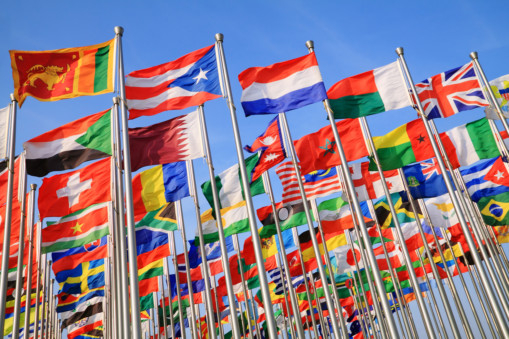
The Commonwealth, that post-colonial club of nations that shares a strange and complicated relationship to the British empire, is asking itself: What will happen when the British Queen dies? With various decolonising conversations around the world — from Rhodes Must Fall to Black Lives Matter — now is the time for the Commonwealth to consider decolonising its relationship to the former colonial ruler, Britain. Are the Commonwealth members ready to question the privilege of leadership in an institution that is fundamentally colonial?
The head of the Commonwealth is not technically a position that is inherited with the crown and, officially, no single country is head of the Commonwealth (although its headquarters are in London). This is not an accident of history, but a quirk of empire routed through the rationale of convenient geography. Thus the Commonwealth’s power flows through London (conferred by the monarch) and into the former colonies. This maintains the old centre/periphery dynamics of the empire. The Queen’s status as head of the Commonwealth complements the mystique of power associated with the monarchy.
Perhaps a strong association with the crown made sense in the early years, when the Commonwealth’s goal of bridging the economic gap between “developed” and “developing” countries (or the coloniser and colonised) was envisioned through north-south flows. But is this still the case? The world is a much more complicated place than when the Commonwealth secretariat was established in 1965. The global economy flows through several centres, including emerging economic powers who are members of the Commonwealth, such as India and South Africa. Plainly speaking, the symbolic relationships of old do not suit our post-colonial world.
The former Canadian prime minister, Lester Pearson, remarked that the Commonwealth has gone from having an emperor to a king to a head. Yet, despite the upheaval of decolonisation, there is still no diversity in who serves as that head. The organisation’s diversity is represented by and through the position of the secretary-general, which provides the real leadership on a world stage. Shridath Ramphal of Guyana, the longest-serving Commonwealth secretary-general (1975-1990), championed the Commonwealth as a family of nations that fostered a common humanity. The international aspiration of the Commonwealth was, in his words, “the supremacy of community over otherness ... the negation of dominion and racism”.
That sounds nice, but is possibly not terribly truthful. Ramphal embraced a vision of the Commonwealth as represented values based on equality and anti-racism, while downplaying the inherent contradictions of the Commonwealth — the exploitation, violence and deeply ingrained racism that made its existence possible. Commonwealth members risk making the same mistake if they fail to seize this opportunity to infuse the institution with a new leadership structure.
Is the United Kingdom — and by extension, the British crown — capable of the moral leadership required to fulfil this role? Can the monarchy reinvent itself by facing its past and current exploitation of its former colonies? The Brexit vote revealed Britain’s nationalist and isolationist position on world affairs. The Leave campaign was fuelled by xenophobia and racism against immigrants. Politicians campaigning for Brexit did so with imperial nostalgia mixed with the white man’s burden. the alternative they proposed went back to Britain’s special status within the Commonwealth as first among equals. With this questionable foundation, Britain cannot be trusted to champion internationalism and multiculturalism.
— Guardian News & Media Ltd
Nalini Mohabir teaches at Ryerson University (Toronto, Canada). She is a historical geographer whose research focuses on the Caribbean.








